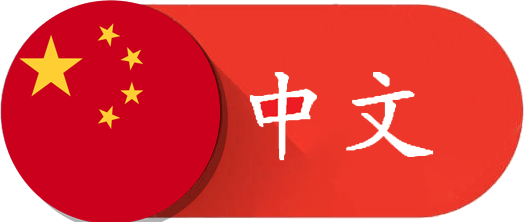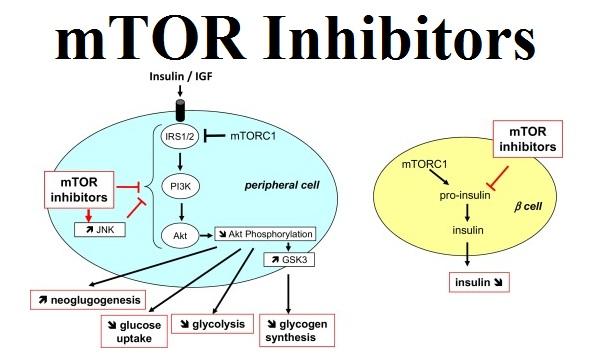The discovery of mTOR inhibitors caused the mTOR pathway to becoming a large topic of interest and research. mTOR can control lifespan in some model organisms studied. This potential mechanism can help to understand how mTOR impacts aging-related processes and also, how it can be used as a therapeutic approach for age-related diseases. Later experiments with rapamycin, besides being antifungal, showed powerful anti-cancer, and anti-tumor properties, as well as being a significant immunosuppressant. Providing all these benefits causes a 10 to 20% lifespan extension in mice.
What is mTOR inhibitor?
mTOR is classified as a drug that inhibits the mechanistic target of rapamycin (mTOR). mTOR stands for serine/threonine-specific protein kinase found in all eukaryotes, from the PI3K-related kinase (PIKK) family. It is a very interesting compound that controls cell growth and proliferation, which has been found to have a major role in cancer and aging processes. All these processes are regulated by two protein complexes, such as mTOR1 and mTOR2. In many clinical trials, the most accepted inhibitors called rapalogs (rapamycin and its analogs), show therapeutic responses to many different tumor types.
mTOR inhibitors are specifically designed drugs to inhibit the activity of serine/threonine-specific protein kinases. Protein kinases regulate cell metabolism, growth, and malignant cell proliferation. Rapamycin and its structural analogs inhibit tumor growth by acting directly on malignant cells and indirectly by interacting with certain mechanisms of angiogenesis. Rapalogs are more selective to mTOR1 complex, efficiently fighting cancer in preclinical models. Recently, studies found new potent mTOR inhibitors that block both mTOR1 and mTOR2 function.
How do mTOR inhibitors work?
As an immunosuppressant, rapamycin inhibits T-cell proliferation, induced by the cytokines and interleukin 1 (IL-1), IL-2, IL-3, IL4, IL-6, colony-stimulating factors (CSFs), insulin-like growth factors (IGF), and platelet-derived growth factors (PDGF). Through different mechanisms of action, mTOR inhibitors perform their action.
Does mTOR increases lifespan?
mTOR increases lifespan in yeast strain. The inhibition of mTOR with rapamycin prolongs lifespan by 10-20% in mice, and by 50% in C.elegans. Although the actual mechanism that explains how mTOR increases lifespan is unknown, it is established that mTOR increases lifespan. The inhibition of mTOR1 may prolong age-related diseases. Therefore, mTOR inhibitors have positive feedback on slowing down the aging process. During the investigation in mice, the lifespan extension was dose-dependent. The best lifespan extension was achieved with mTOR1 inhibition, because mTOR2 inhibition may be dangerous due to the relation of insulin suppression on hepatic gluconeogenesis.
Calorie restriction is another way to increase lifespan in experimental models. Together, calorie restriction and mTOR1 inhibition, enhance the lifespan effects on flies. Currently, according to all studies, mTOR inhibitors can increase lifespan in all experimental models used. This can become a potent therapeutical agent for slowing down aging, decreasing age-related diseases, and increasing lifespan in the future.
Natural mTOR inhibitos list
Besides the new mTOR inhibitors that compete with ATP and inhibit mTOR1 and mTOR2, there are natural mTOR inhibitors that are considered to effectively inhibit mTOR too. Some of them include:
Epigallocatechin gallate (EGCG)
Epigallocatechin gallate (EGCG) is a type of plant compound called catechin. Catechins can be further categorized into a large group of plant compounds known as polyphenols. EGCG and other related catechins act as powerful antioxidants that can protect against cell damage caused by free radicals. Research shows that catechins such as EGCG can reduce inflammation and prevent certain chronic diseases, including heart disease, diabetes, and certain cancers. EGCG is probably best known as the main active ingredient in green tea. In fact, many of the health benefits associated with drinking green tea are generally attributed to the EGCG it contains. EGCG can activate AMPK and suppress the mTOR function.
Resveratrol
Like EGCG, resveratrol (3,4,5′-trihydroxy-trans-stilbene) belonged to a class of polyphenolic compounds called stilbenoids. Resveratrol with its antioxidant properties maintains cell health, vitality, and slows down aging. Also, it can have a protective effect on the nervous system and have positive effects on some neurological diseases. With its anticancer properties, it inhibits the mTOR pathway.
Curcumin
In the latest findings, curcumin inhibits mTOR and applies its antiproliferative effect. As a natural mTOR inhibitor with various health benefits has been shown to improve the effectiveness of specific cancer treatment and reduce side effects. In addition to the primary anti-inflammatory effect, scientific studies show that curcumin has significantly reduced the growth of cancer cells. Primarily, curcumin can achieve this effect by blocking the mTOR pathway. Some additional studies show that curcumin can significantly inhibits mTOR1 activity, by separating the raptor from mTOR.
3,3-Diindolylmethane (DIM)
Another compound from the list of natural mTOR inhibitors is 3,3′-Diindolylmethane (DIM). It is found in many vegetables such as cabbage, brussels sprouts, cauliflower, and broccoli. Diindolylmethane is used to prevent breast, uterine, and colorectal cancers, as well as to prevent prostate enlargement (benign prostatic hypertrophy, BPH) and to treat premenstrual syndrome (PMS). DIM can inhibit proliferation, by suppressing the mTOR/AKT pathway.
Genistein
Like many isoflavones, genistein acts as an anti-inflammatory compound that acts against free radicals. Genistein impacts cell proliferation, reduces cancer growth, by various pathways including blocking the mTOR pathway. It can also bind to the estrogen receptors, which can be the reason for causing breast cancer. Despite that, it can alleviate the symptoms of Sanfilippo syndrome by adequate genistein dose.
NAD supplement
Nicotinamide adenine dinucleotide (NAD) is a protein found in all living cells. As we age, the NAD+ levels decrease so we must replenish them with NAD+ precursors. NAD+ is synthesized through five precursors including nicotinamide riboside (NR), nicotinic acid (NA), nicotinamide (NAM), nicotinamide mononucleotide (NMN), and tryptophan (Trp). Because NAD+ is required for energy production in every tissue, NAD supplementation can increase the production of ATP, and slow down aging. According to recent research, NR and NMN have been shown to be the most efficient precursors for delaying aging effects. Hygieia Biotech is a professional wholesale manufacturer of anti-aging and longevity ingredients, that offers from full formula development, dosage analysis, to formula evaluation and testing, resulting in a pure 99% raw powder.



